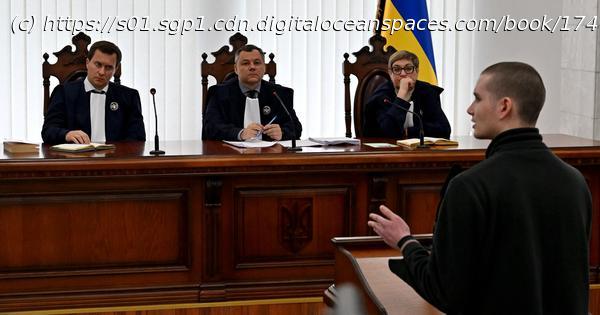Conducting a war crimes trial during active hostilities – and by a civilian court – is not normal.
The war crimes trial of a Russian soldier in Ukraine – which concluded on May 23 with a conviction and life sentence for the defendant – was permissible under international law. And with the eyes of the world on them, Ukrainian authorities would have wanted the proceedings to be played entirely by the book. But nonetheless, conducting a war crimes trial during active hostilities, and by a civilian court, is not normal. Nor may it be wise. As an expert on the law of war – that is, the set of international legal protocols and conventions that set out the rules of what is allowed during conflicts – I am concerned that trying a prisoner of war in such circumstances is problematic for several reasons. Further, it could set a disturbing precedent. While the Ukrainian trial may well have been conducted under due process of law, the same may not be true if Russia decides to follow suit. There are, of course, advantages to holding a trial so close to an alleged crime – in this case, the shooting death of an unarmed civilian in the Ukrainian village of Chupakhivka on February 28. For example, it makes it easier to gather evidence because the crime scene is still fresh and eyewitness memories more recent. Such trials could also provide timely justice for the loved ones of civilians killed. Moreover, Ukraine has moral high ground here. The country is the victim of clear-cut aggression from Russia. And rights experts have detailed a pattern of war crimes and crimes against humanity carried out by Russia since its invasion of Ukraine. Rules governing war crimes trials are set out in the Geneva Conventions – a set of treaties and additional protocols that establish acceptable conduct in wars and the duties to protect civilians. Both Russia and Ukraine are signatories to the convention, and Ukraine is also bound to its commitments to the European Convention on Human Rights. There is nothing in international law prohibiting war crime trials from taking place during hostilities. Nonetheless, some commentators have expressed concerns about the practice. In one of its commentaries on the Geneva Conventions, the International Committee of the Red Cross expressly warned against war crimes trials proceeding during wartime. The commentaries, which collectively are seen as the authorities on interpreting the conventions, note that it is difficult for an accused person “to prepare his defence during hostilities”, adding: “It seems to be a good rule, therefore, that the trial of a person accused of war crimes should not take place at a time when it is impossible for him to adduce proofs which could lessen his responsibility or disprove it.






